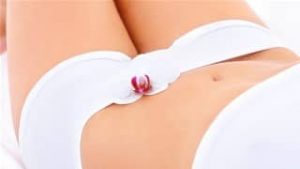Vaginal Itching and Vaginal Infections - Causes and Treatments

Do you suffer from a many days of vaginal and vulvar itching ?
Is it a simple irritation or a burning sensation in the vulva ?
Have you seen the manifestation of other symptoms such as vaginal discharge which may be a sign of infection? In all cases, it is advisable to consult a specialist who will establish an accurate diagnosis before prescribing an appropriate and effective treatment.
This does not, of course, mean you cannot learn about this topic.
Therefore, we will answer these three questions: What are the main causes of vaginal itching and burning ? What are the main symptoms of vaginal infections ? What are the conventional treatments used to fight against the diseases that cause vaginal itching ? In another article (see link below), we will see effective natural remedies to stop vaginal irritation and burns.
Common Causes of Vaginal Itching and Burning
Here are 6 of the most observed causes:
1) Bacterial vaginosis (BV)
What is exactly is vaginosis ? Vaginosis is a type of vaginitis which as the name suggests, appears in the vagina, when there is an imbalance in the population of bacteria that make up the vaginal flora. This type of infection, extremely common in women, is fortunately not serious.
Vaginosis occurs when infectious germs such as Gardnerella vaginalis and Mycoplasma multiply excessively, to the detriment of the lactic flora. The lactic flora, composed especially of bacilli Döderlein (lactobacillus acidophilus) disappears while it plays a protective role in the vagina.
Indeed, this type of harmless lactic bacteria which secretes lactic acid which maintains the pH of the vaginal environment between 4 and 4.5, a pH acid which prevents the proliferation of pathogenic germs.
What are the symptoms of bacterial vaginosis ? Besides the burning, itching and vaginal irritation, bacterial vaginosis is characterized by vaginal discharge of a whitish-gray or greenish-gray color, emitting a foul-smelling (fishy) odor.
2) Sexually Transmitted Diseases (STDs)
Gonorrhea (bacteria ‘Neisseria gonorrhoeae’), trichomoniasis (flagellate protozoan ‘Trichomonas vaginalis’), chlamydia (bacteria ‘Chlamydia trachomatis’ or ‘Chlamydophila psittaci’), genital herpes (virus Simplex Herpes type 1 or 2) and genital warts (human papilloma virus) are all sexually transmitted disease that can cause vaginal itching and irritation associated, of course, with other specific symptoms.
3) Vaginal Thrush or Vaginal Candidiasis
Statistically, we know that about three out of four women develop a vaginal yeast infection (also called yeast infection or vaginal thrush) at some point during their lives.
Vaginal candidiasis is caused by fungi of the species ‘Candida albicans’ normally present in the vagina and which grow excessively in the vagina and the vulva (labia majora and minora) causing inflammation of the vagina, vaginal and vulvar itching, burning sensations, redness, burning during urination, vaginal discharge (a white granular flow like curd) and pain during intercourse.
4) Menopause
The fall in estrogen production that occurs in women during menopause causes a thinning and drying of vaginal walls, which can lead to vaginal itching and irritation.
The thinning of the vaginal walls is also observed in some women who are breastfeeding.
5) Chemical Irritants
A number of chemicals in soaps, detergents, fabric softeners, creams, douches, sprays, contraceptive foams, condoms, toilet paper, scented, scented tampons, etc, can cause vaginal and vulvar irritation combined with a burning sensation.
6) Complications Related To Pregnancy
An early spontaneous abortion, ectopic pregnancy and other complications occurring during pregnancy can cause abnormal bleeding. In the case of blood loss during pregnancy, it is imperative to consult the doctor or gynecologist. Miscarriage is recognized by an abundant bleeding similar to that of menstruation.
7) Lichen Sclerosus
Lichen sclerosus is a rare chronic inflammatory dermatosis that appears in the form of atrophic shiny white plates (thin skin), ulcers and cracks in the labia minora, the inner surface of the labia and clitoral hood. The vagina is never affected by this condition of the skin and mucous membranes.
Symptoms include : itching or vulvar itching (especially at night), tingling, burning during urination, the skin becomes of a whitish color, the labia minora can shrink and the clitoris may eventually disappear.
Lichen sclerosus occurs at any age but is most evident after menopause between 50 and 60 years.
Note: In the case of young girls, it is important to report any itching, burning and irritation to a health professional as these symptoms may be signs of sexual abuse.
Vaginal Itching and CONVENTIONAL TREATMENTS
• In a number of cases, itching is temporary and does not appear to be related to a pathology. However, if the burning and irritation in the vulva persist, it is best to consult a doctor who will offer a diagnosis (identification of cause) and propose an appropriate treatment according to etiology.
• For example, bacterial vaginosis and sexually transmitted diseases are treated with antibiotics (mainly clindamycin : Dalacin ® Zindacline ® and metronidazole : Flagyl ®).
• Fungus or vaginal candidiasis is treated with antifungal drugs (polyenes such as nystatin : Mycostatin ®, imidazole derivatives such as miconazole : Gyno-Daktarin ® and ketoconazole : Kétoderm ®, terbinafine : Lamisil ® and the ciclopiroxolamine : Mycoster ®).
• The itching associated with menopause is treated by estrogen hormone therapy.
• Lichen sclerosus is treated with class 1 corticosteroid creams.
• Drugs prescribed for oral or vaginal administration may be in the form of tablets, vaginal creams, gynecological eggs or pills.
Author : Alexis ROGER
Power of Hormones – Full Digital Package
What is worth to you to be able to finally take control of your health?
If you knew that you could press a magic button and all of your hormone problems were resolved, so you could finally live how you WANT to live, what would that be worth to you?
I don’t want to darken the mood…
But you’ve probably seen other women who suffer from fatigue, acne, or excess weight who end up spending thousands of dollars on expensive specialists and surgeries… only to find it doesn’t work at all, or it’s only a temporary fix.
And I know exactly how this feels, because I was one of those women…
Every fruitless appointment I had with the endocrinologists and other « specialists » cost me hundreds of dollars per hour… yet I had NOTHING to show for it.
And I know how devastated and hopeless and quite frankly « used » this makes you feel…
But thankfully, this won’t happen to you…
Weight Loss Juice with Parsley
Brain Teaser
__________

